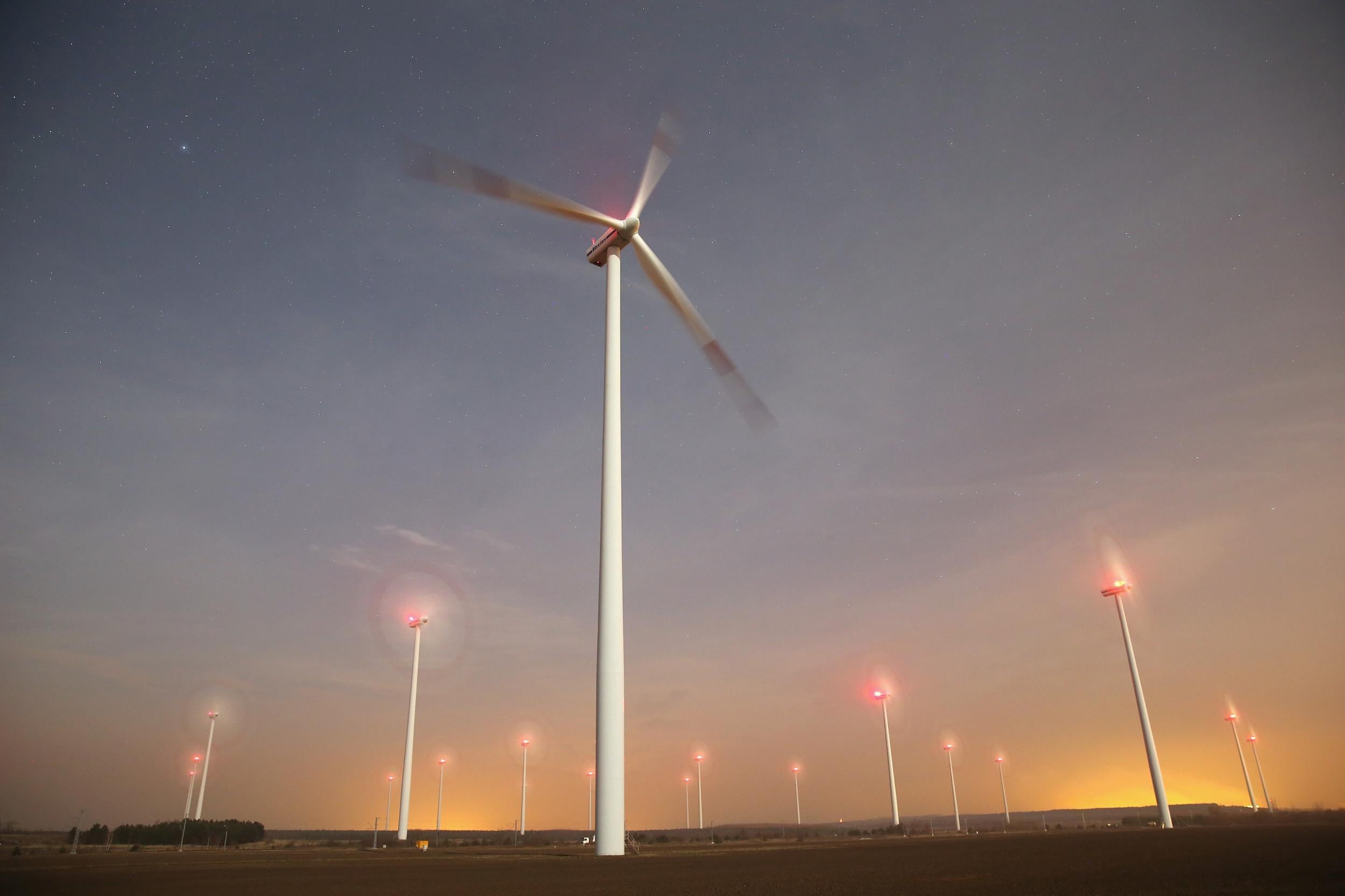UK ranked 24th out of 28 EU member states for renewable energy
'Renewable energy is now cost-competitive and sometimes cheaper than fossil fuels'

The UK has one of the lowest rates of renewable energy consumption in Europe, according to new figures.
The European Union has a target of 20 per cent of energy use coming from carbon-free sources by 2020.
However there is a vast difference between the best and worst performing states.
Sweden has the highest rate with more than 54 per cent of its energy coming from renewable sources in 2015, following by Finland on just under 40 per cent and Latvia on 39 per cent.
The UK’s figure is just 8.2 per cent, putting it in 24th place out of 28 and not far ahead of last-placed Luxemburg on 5 per cent.
However the European Commission said the EU as a whole remained “well on track” to meet it 2020 target, with an average figure of 16.4 per cent in 2015.
Miguel Arias Cañete, Climate Action and Energy Commissioner, said: “Despite the current geopolitical uncertainties, Europe is forging ahead with the clean energy transition.
“There is no alternative. And the facts speak for themselves: renewable energy is now cost-competitive and sometimes cheaper than fossil fuels, employs over one million people in Europe, attracts more investments than many other sectors, and has reduced our fossil fuels imports bill by €16bn (£13.7bn).
“Now, efforts will need to be sustained as Europe works with its partners to lead the global race to a more sustainable, competitive economy.”
The figures include electricity consumption, but also the energy used for heating and transport.
More than 20 per cent of the UK's electricity now comes from renewable energy, but the country has struggled to make an impact on the greenhouse gases produced by cars and other vehicles and also to heat people's homes.
The figure for the UK's renewable energy use in 2015 means that the UK is slightly ahead of schedule if it is to meet its share of the overall EU target of 20 per cent, set at 15 per cent because of its low starting point.
But there are concerns that progress is beginning to stall.
Dr Nina Skorupska, chief executive of the Renewable Energy Association, said: "We have been saying for some time that the UK is unlikely to meet its 2020 renewable energy target overall given the current policy framework.
"While we are likely to meet and even overshoot on power, much more progress needs to be made on transport and heat.
“In heat, the Government’s recent reform of the Renewable Heat Incentive has stilted the growth of much of the biomass sector, which was the technology that was previously deploying the majority of the heat under the scheme.
“The Department for Transport should accelerate the introduction of ... renewables in the fuel mix, increasing the cap on crops in the production of sustainable biofuels.
“While the European Commission report indicates that we met our interim target in 2013/2014, the Government has introduced over a dozen negative policy changes that have significantly slowed renewable deployment since that point."
"The UK is moving to 15 per cent renewable energy from a low base and, as the report points out, along with the Netherlands, France, and Luxembourg we have the biggest gap to meet our target."
The Department for Business, Energy and Industrial Strategy said: "We are currently progressing in line with the trajectory set out in the Renewable Energy Directive, having met the Directive’s interim targets."
Here is a list of each EU country showing its renewable energy share in 2015:
Sweden 54.1%
Finland 39.5%
Latvia 39.2%
Austria 33.6%
Denmark 30.6%
Estonia 27.9%
Portugal 27.8%
Croatia 27.5%
Romania 24.7%
Lithuania 24.3%
Slovenia 21.8%
Bulgaria 18.4%
Italy 17.1%
EU average: 16,4%
Spain 15.6%
Greece 15.5%
France 14.5%
Germany 14.5%
Czech 13.6%
Slovakia 11.9%
20, Poland 11.8%
Hungary 9.4%
Cyprus 9.1%
Ireland 9%
UK 8.2%
Belgium 7,.3%
Netherlands 6%
Malta 5.3%
Luxemburg 5%
Join our commenting forum
Join thought-provoking conversations, follow other Independent readers and see their replies
Comments
Bookmark popover
Removed from bookmarks